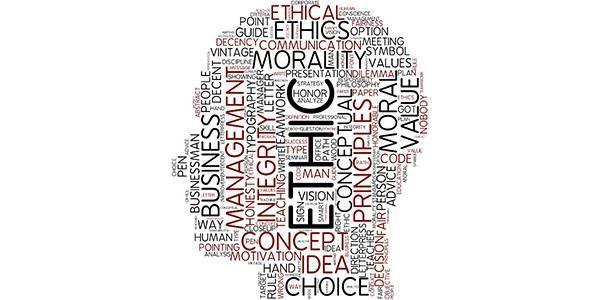Ethics Explainer: DeontologyMar 19, 2021
Deontology is a hypothesis that recommends activities are fortunate or unfortunate as indicated by an away form of rules.
Its name comes from the Greek word deon, which means obligation. Activities that submit to these guidelines are moral, while activities that don’t, are most certainly not. This moral hypothesis is most firmly connected with German rationalist Immanuel Kant.
His work on personhood is an illustration of deontology by and by. Kant accepted the capacity to utilize reason was what characterized an individual.
From a moral point of view, personhood makes a scope of rights and commitments in light of the fact that each individual has characteristic respect – something that is crucial to and is held in equivalent measure by every single individual.
This respect makes a moral ‘line in the sand’ that keeps us from acting in specific manners either toward others or toward ourselves (since we have pride also). Above all, Kant contends that we may never treat an individual simply as an unfortunate chore (never comparably a ‘asset’).
Kant’s morals isn’t the solitary illustration of deontology. Any framework including an away from of rules is a type of deontology, which is the reason a few people consider it a “rule-based ethic”. The Ten Commandments is a model, just like the Universal Declaration of Human Rights.
Most deontologists say there are two various types of moral obligations, amazing obligations and blemished obligations. An ideal obligation is unbendable. “Try not to execute honest individuals” is an illustration of an ideal obligation. You can’t submit to it a tad – it is possible that you execute guiltless individuals or you don’t. There’s no center ground.
Defective obligations do take into account some center ground. “Find out about your general surroundings” is a blemished obligation since we would all be able to invest various measures of energy on instruction and each be satisfying our commitment. The amount we focus on defective obligations is up to us.
Our purpose behind making the best choice (which Kant called a proverb) is likewise significant. We ought to carry out our responsibility for no other explanation than on the grounds that it’s the proper activity.
Submitting to the standards for personal circumstance, since it will prompt better outcomes or even on the grounds that it fulfills us isn’t, for deontologists, a moral explanation behind acting. We ought to be spurred by our regard for the ethical law itself.
Deontologists expect us to adhere to all inclusive standards we provide for ourselves. These guidelines should be as per reason – specifically, they should be legitimately reliable and not offer ascent to logical inconsistencies.
It merits referencing that deontology is regularly seen as being emphatically contradicted to consequentialism. This is on the grounds that in stressing the aim to act as per our obligations, deontology accepts the outcomes of our activities have no moral significance by any means. Political thinker Michael Walzer gives a short clip adaptation of this thought – “equity however the sky falls”.
The allure of deontology lies in its consistency. By applying moral obligations to all individuals on the whole circumstances the hypothesis is promptly applied to most down to earth circumstances. By focussing on an individual’s goals, it additionally puts morals totally inside our control – we can’t generally control or foresee the results of our activities, however we are in finished control of our expectations.
Others scrutinize deontology for being rigid – by disregarding what is in question regarding results, some say it misses a genuine component of moral dynamic. De-underlining results has different ramifications as well – would it be able to make us liable for ‘wrongdoings of exclusion?’ Kant, for instance, contended it is untrustworthy to lie about the area of our companion, even to an individual attempting to kill them! For some, this appears to be naturally bogus.
One method of settling this issue is through a thought called limit deontology, which contends we ought to consistently comply with the principles except if in a crisis circumstance, so, all things considered we ought to return to a consequentialist approach.
However, is this a cop-out? How would we characterize ‘crisis?’
Be the first to post a message!
